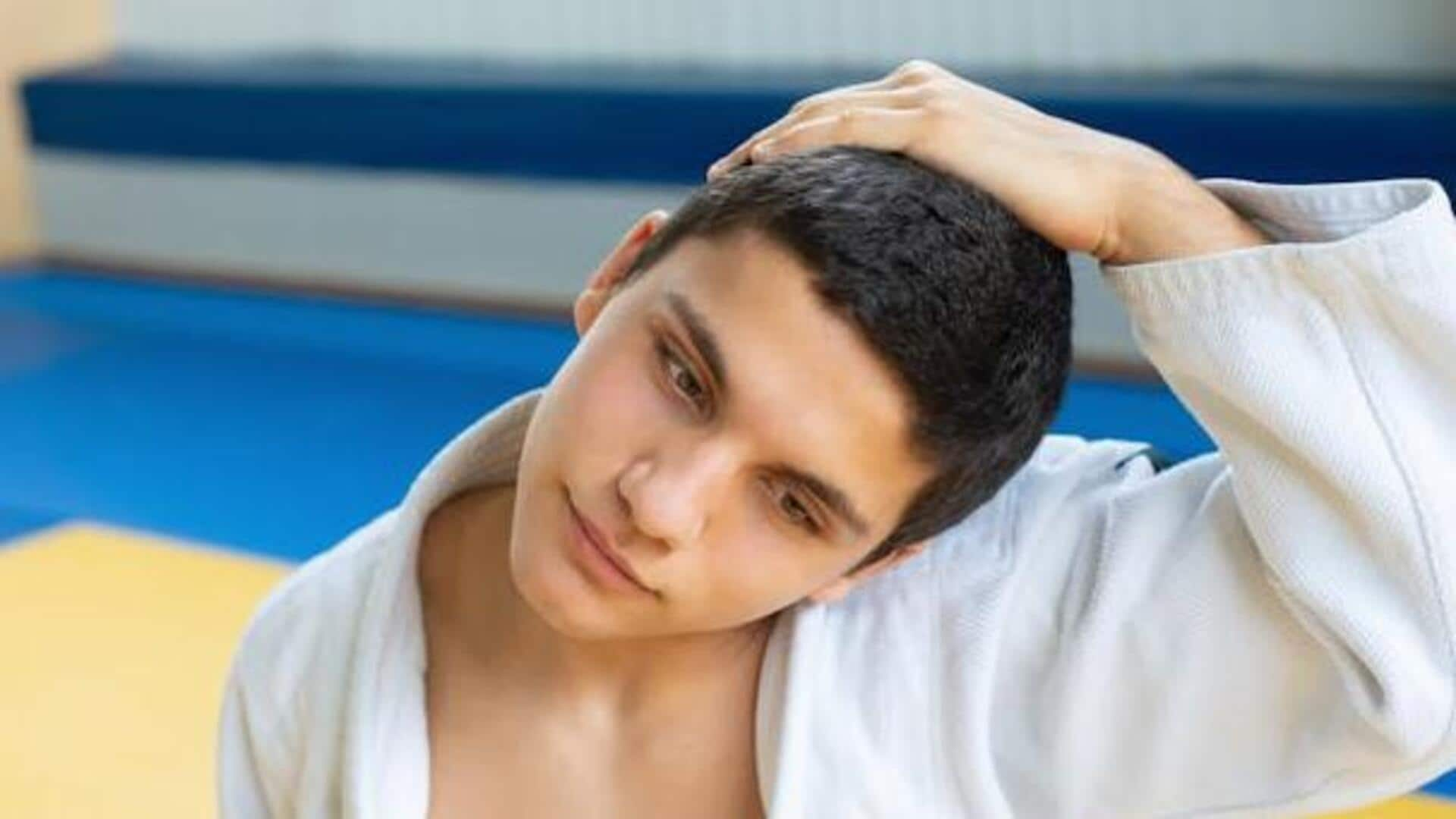
5 exercises for a stronger neck
What's the story
Strengthening the neck is key to maintaining good posture and preventing injuries. A strong neck can better support the head, relieve tension, and improve overall body alignment. Adding specific exercises to your routine can effectively build neck strength. Here are five exercises targeting different muscles in the neck area to increase strength and flexibility.
Flexion
Neck flexion exercise
Neck flexion exercises emphasize on strengthening the muscles at the front of your neck. To do this exercise, lie on your back with your knees bent and feet flat on the floor. Slowly lift your head towards your chest without lifting your shoulders off the ground. Hold it for a few seconds and return to the starting position. Repeat it eight to 10 times.
Extension
Neck extension exercise
Neck extension exercises target muscles at the back of your neck. Start by lying face down on a mat with arms at your sides. Gently lift your head off the ground while keeping shoulders relaxed, and hold for a few seconds before lowering it back down. Perform eight to ten repetitions, ensuring you do not strain or overextend during each lift.
Lateral flexion
Lateral neck flexion exercise
Lateral flexion exercises work on strengthening side muscles of the neck. Sit or stand upright with good posture. Then, slowly tilt one ear towards its corresponding shoulder without raising that shoulder up toward it. Hold briefly before returning upright again. Then switch sides, repeating eight times per side. Ensure smooth, controlled movements throughout each repetition.
Rotation
Neck rotation exercise
Neck rotation helps improve flexibility as well as strengthen rotational muscles around the cervical spine region. By sitting tall, either cross-legged or in a chair-seated position, turn your head gently left and right. Look over respective shoulders, holding momentarily in each direction. Complete a set totaling sixteen rotations, alternating between both directions. This should be evenly distributed across the session duration period. Practiced regularly, it can increase the range of motion over time.